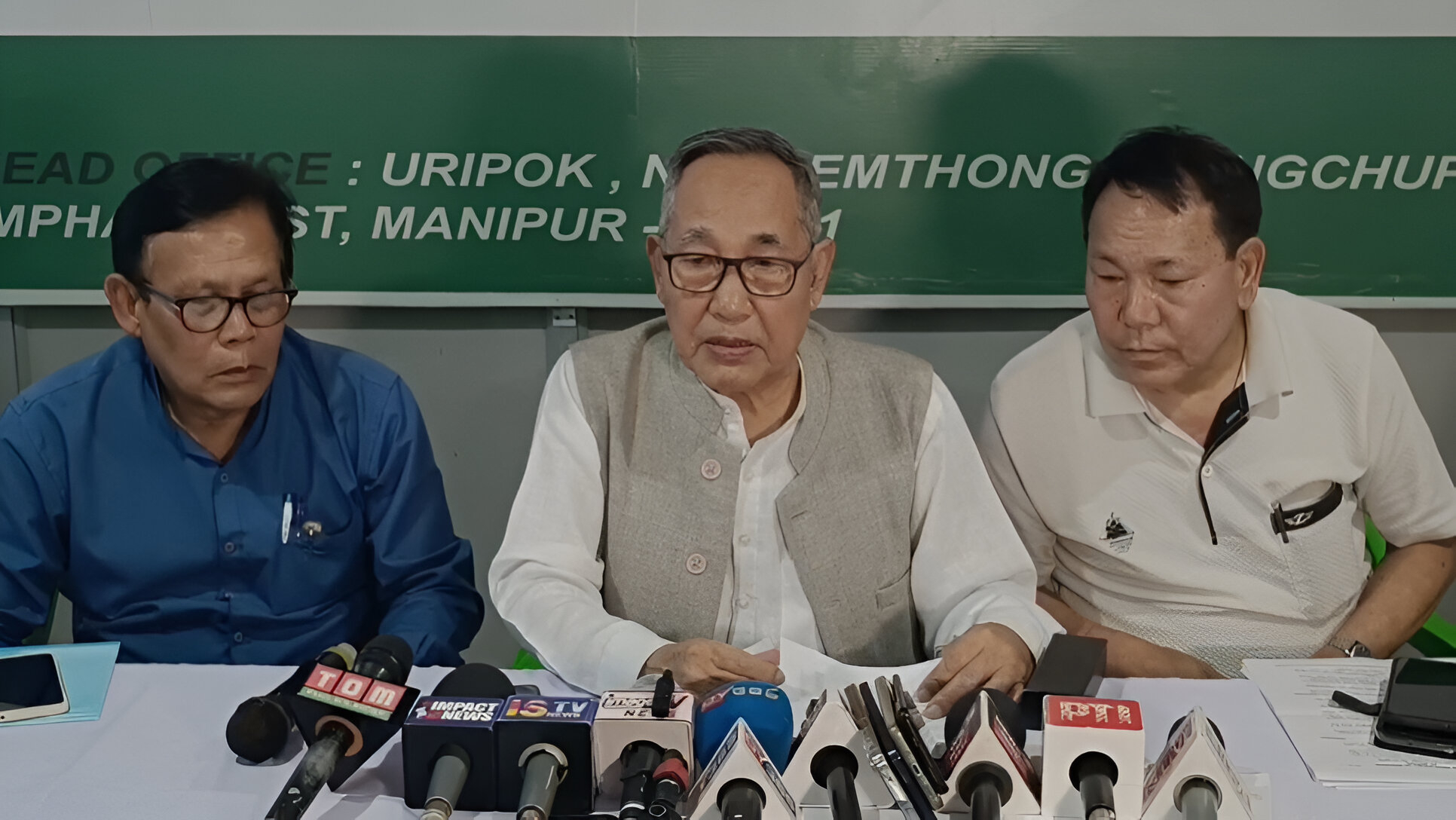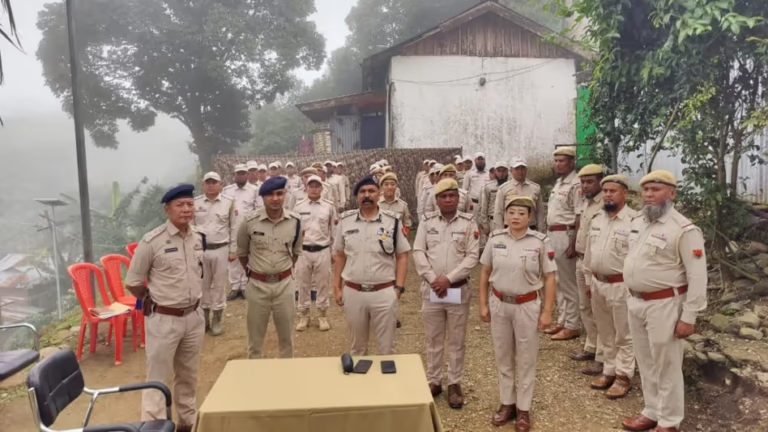Manipur Political Parties Unite Against Supreme Court’s Delimitation Directive: A Deep Dive into the Five-Point Resolution
In a significant political development, multiple parties in Manipur have come together to oppose the Supreme Court’s directive on delimitation, adopting a comprehensive five-point resolution. This article explores the intricacies of this opposition, the reasons behind it, and the potential implications for Manipur’s political landscape.
Summary of the Opposition to Delimitation
On March 25, 2025, representatives from 16 political parties in Manipur convened in Imphal to discuss the Supreme Court’s recent directive to complete the long-pending delimitation process in the northeastern states, including Manipur. Notably absent from this meeting were the ruling Bharatiya Janata Party (BJP) and the opposition Congress. The attending parties collectively adopted a five-point resolution opposing the directive, citing concerns over the accuracy of the 2001 census data and the potential for increased ethnic tensions amid ongoing conflicts.
Understanding Delimitation and Its Significance
Before diving into the specifics of the opposition, let’s break down what delimitation actually entails. In simple terms, delimitation is the process of redrawing the boundaries of electoral constituencies to ensure fair representation based on population changes. Think of it like rearranging the seating chart at a dinner party to accommodate more guests at one table and fewer at another, ensuring everyone has a fair spot. In India, this process is crucial for maintaining balanced representation as demographics shift over time.
The Supreme Court’s Directive: A Brief Overview
The Supreme Court recently directed the completion of the long-pending delimitation process in four northeastern states: Arunachal Pradesh, Nagaland, Manipur, and Assam. The intent behind this directive is to update and realign electoral boundaries to reflect current population data, thereby ensuring equitable representation. However, in Manipur, this directive has been met with resistance from various political factions.
The Five-Point Resolution: Key Concerns and Demands
During the meeting in Imphal, the 16 political parties outlined a five-point resolution highlighting their apprehensions and stipulating their demands:
- Correction of 2001 Census Data: The parties argue that the 2001 census data, which would serve as the basis for delimitation, contains inaccuracies. They demand that these errors be rectified before proceeding, to prevent skewed representation.
- Synchronization with Nationwide Delimitation in 2026: They propose that Manipur’s delimitation should align with the nationwide process scheduled for 2026, ensuring uniformity and fairness.
- Consideration of Current Unrest: Given the ongoing ethnic conflicts, particularly between the Meitei and Kuki communities, the parties believe that initiating delimitation now could exacerbate tensions and lead to further unrest.
- Inclusion of Major Political Parties: The resolution calls upon both the BJP and Congress to endorse their stance and participate in future deliberations, emphasizing the need for a united front on this critical issue.
- Legal Intervention: The parties plan to intervene in the ongoing Supreme Court proceedings to seek a deferment of the delimitation process until their concerns are addressed.
Ethnic Sensitivities and the Risk of Escalation
Former Deputy Chief Minister and NPP state president Yumnam Joykumar voiced concerns that proceeding with delimitation amid current ethnic tensions could inflame existing conflicts. He highlighted the potential for the Naga community to be drawn into disputes, further complicating the situation. Joykumar suggested cross-referencing the 2001 census data with Aadhaar records and electoral rolls to ensure accuracy, akin to double-checking a recipe before cooking to avoid a culinary disaster.
The Absence of BJP and Congress: Implications
The notable absence of Manipur’s two major political parties, the BJP and Congress, from the meeting raises questions about their stance on the issue. Their participation could lend significant weight to the resolution and demonstrate a unified political approach to the Supreme Court’s directive. Their silence, however, leaves room for speculation about internal disagreements or strategic calculations.
Historical Context: Delimitation in Manipur
To understand the gravity of the current opposition, it’s essential to look back at Manipur’s delimitation history. The last delimitation exercise in the state was conducted based on the 1971 census. Attempts to initiate the process using the 2001 census data have been fraught with controversy, primarily due to alleged inaccuracies and the sensitive ethnic composition of the state. Past efforts have stalled amid fears that changes in constituency boundaries could disproportionately benefit certain communities, leading to political and social unrest.
The Role of Census Data: Accuracy and Controversy
Census data serves as the backbone for delimitation, making its accuracy paramount. In Manipur, the 2001 census figures have been disputed, with allegations of inflated numbers in certain areas. Using flawed data for redrawing constituency boundaries is akin to building a house on a shaky foundation—it compromises the integrity of the entire structure. The political parties’ demand for data verification underscores the critical need for reliable demographic information in the delimitation process.
Potential Impact on Manipur’s Political Landscape
If the delimitation process proceeds without addressing these concerns, the ramifications could be profound:
- Altered Political Representation: Changes in constituency boundaries may shift the balance of power among communities, potentially marginalizing certain groups and altering the state’s political dynamics.
- Heightened Ethnic Tensions: Redrawing boundaries in a volatile environment could exacerbate existing ethnic conflicts, leading to unrest and instability.
- Legal Challenges: Unresolved disputes over census data and delimitation procedures may result in prolonged legal battles, further delaying the process and diverting attention from governance and development.
Looking Ahead: A Call for Unity and Constructive Change
As the political discourse heats up, there is a growing sense among many leaders and citizens that unity and collaboration are the only paths to a sustainable resolution. The five-point resolution adopted by Manipur’s political parties is a call for constructive change—a plea to ensure that the delimitation process serves the interests of all, rather than a select few.
This moment in Manipur is a reminder that every democratic society faces moments of upheaval and uncertainty. What matters most is how these challenges are met—with dialogue, transparency, and a commitment to the common good. Whether through negotiations, legal reforms, or grassroots activism, the goal must be to create a process that truly reflects the aspirations of the people.
Final Thoughts: The Importance of Inclusive Decision-Making
In wrapping up our deep dive into the controversy surrounding the Supreme Court’s delimitation directive in Manipur, it’s important to remember that at the heart of this debate is the principle of fair representation. Political boundaries are not just lines on a map; they are the framework within which people’s voices are amplified. When these boundaries are redrawn without a thorough and inclusive process, the very foundation of democratic governance is at risk.
For the people of Manipur, this is a defining moment—a chance to shape the future of their state by ensuring that every community, regardless of its size or influence, is given an equal opportunity to participate in the democratic process. It’s a call to action for all those who believe in fairness, transparency, and the power of collective decision-making.
As we move forward, the hope is that the dialogue sparked by this controversy will lead to reforms that are not only legally sound but also socially just. A process that listens to the voices of its people can become a model for other regions grappling with similar challenges. After all, a democracy is only as strong as its commitment to its citizens.
FAQs
- What is delimitation, and why is it important in Manipur?
Delimitation is the process of redrawing electoral boundaries to ensure fair representation. In Manipur, it is crucial because of the state’s diverse ethnic composition, and any changes can significantly impact political representation and community balance. - Why are Manipur’s political parties opposing the Supreme Court’s directive?
They oppose the directive because they believe it could disrupt the ethnic balance, lead to unfair representation, lack transparency, impact local governance, and be implemented without sufficient community consultation. - What are the key points of the five-point resolution adopted by the parties?
The resolution calls for revising the delimitation process to reflect local demographics, ensuring public consultation, protecting minority rights, establishing independent oversight, and implementing changes in a time-bound manner. - How might the delimitation process affect future elections in Manipur?
If executed improperly, the delimitation process could skew electoral outcomes, marginalize certain communities, and create political instability, which might erode trust in the democratic process and impact voter confidence. - What steps are being suggested to improve the delimitation process?
Experts recommend enhanced stakeholder engagement, revisiting and adapting the directive based on local feedback, setting up independent oversight, piloting new boundaries in select districts, and running public awareness campaigns.




